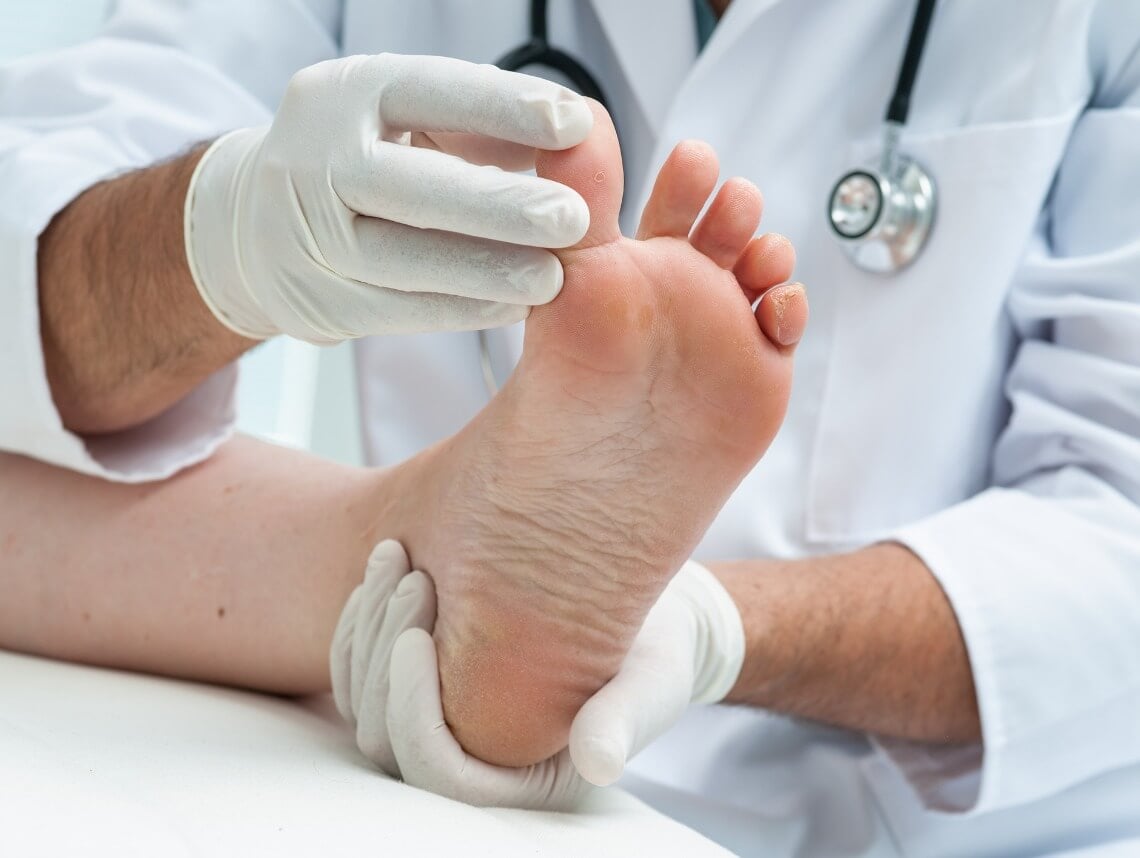
Severe pain, burning sensations, and numbness – those who suffer from diabetic neuropathy, also called diabetic nerve damage, are far too familiar with these symptoms. It is estimated that over 20 million Americans suffer from some form of nerve damage, most often caused by diabetes. As diabetes progresses, the risk of developing serious complications increases, and nerve damage (if left untreated) may become life-threatening.
What is diabetic neuropathy?
Diabetes is one of the most common diseases in America, and it affects nearly 8% of the US population. Diabetic neuropathy often develops when the nerves in the body become damaged due to high levels of glucose. It comes in many forms, each affecting different parts of the body.
The most common type is called peripheral neuropathy, nerve damage that primarily affects the hands, arms, legs, and feet. Peripheral neuropathy affects nearly 60-70% of people with diabetes.
Diabetic Neuropathy Symptoms
Symptoms of diabetic neuropathy often include:
- Numbness
- Loss of sensitivity to pain or temperature
- Tingling or burning sensations
- Sharp pain
- Cramps
- Extreme sensitivity to touch
- Loss of balance or coordination
Is diabetic neuropathy fatal?
While these symptoms alone are rarely fatal, uncontrolled diabetes can cause severe and permanent damage to the nerves, leading to other serious health problems. Those who experience numbness or loss of sensitivity to pain or temperature are at a high risk of injury and infection. If left unnoticed, minor cuts and burns may lead to deeper infections.
When is amputation necessary?
In severe cases of neuropathy, healthy muscle tissue may die and infection may spread throughout the body, eventually invading the bones. When the use of antibiotics and other medications no longer work, the disease becomes life-threatening, making amputation the only treatment option.
Fortunately, research shows that nearly half of all diabetes-related amputations can be prevented with proper diabetes management (healthy diet, regular exercise, glucose monitoring, and medication).
Tips to Prevent the Risk of Amputation
Because most amputations occur as a result of injury and infection starting in the feet, the following foot care tips should also be considered:
- Stop smoking. Smoking decreases the blood flow in your legs and feet, making it difficult for wounds to heal.
- Check your feet daily for any minor cuts, bruises, or other changes in appearance. Any sudden changes in your feet, including color or even hair loss, may be a sign of poor circulation or another cause for concern.
- Consult a doctor immediately if you experience any swelling, tingling, or numbness. These may be signs of a blocked artery and should be addressed immediately.
- During regular yearly check-ups, be sure to have your doctor examine your feet and voice any concerns you have with him or her.
- Wash your (or your loved one’s) feet daily with warm water, and be sure to thoroughly dry them afterward to avoid skin irritation. To avoid cracks and ulcers, lotion the feet daily.
- Avoid the use of over-the-counter remedies (for corns and calluses) along with alcohol, hydrogen peroxide, and other harmful chemicals. These may cause irritation and/or injury to the skin.
- Seek the help of a professional for nail trimmings (to avoid injury and infection).
- Wear proper footwear to avoid irritation and discomfort, and avoid going outside barefoot to prevent splinters, cuts, and other irritations.
- Be sure to contact a doctor if you notice any wounds that haven’t healed within a few days. Your doctor will be able to determine the proper treatment.
Contact Care Options for Kids for Home Health Care Services
Aside from the pain and discomfort associated with neuropathy, many families experience emotional distress. Whether your family needs respite care or around-the-clock assistance, Care Options for Kids can help. We refer loving and competent caregivers and nurses (LPN or RN) to assist with virtually any duty – from companionship to professional nursing care. Give us a call at (888) 592-5855 or visit us online to Request a Free In-Home Assessment.
Sources
American Diabetes Association
National Diabetes Information Clearinghouse (NDIC)
Mayo Clinic
Everyday Health
